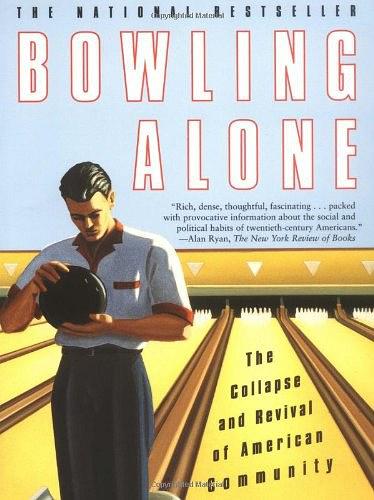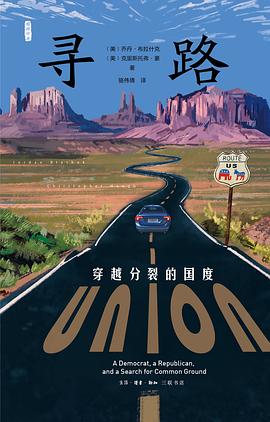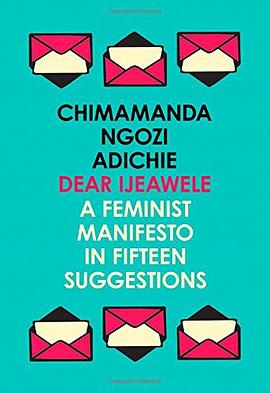Bowling Alone
内容简介
Amazon.com Review
Few people outside certain scholarly circles had heard the name Robert D. Putnam before 1995. But then this self-described "obscure academic" hit a nerve with a journal article called "Bowling Alone." Suddenly he found himself invited to Camp David, his picture in People magazine, and his thesis at the center of a raging debate. In a nutshell, he argued that civil society was breaking down as Americans became more disconnected from their families, neighbors, communities, and the republic itself. The organizations that gave life to democracy were fraying. Bowling became his driving metaphor. Years ago, he wrote, thousands of people belonged to bowling leagues. Today, however, they're more likely to bowl alone:
Television, two-career families, suburban sprawl, generational changes in values--these and other changes in American society have meant that fewer and fewer of us find that the League of Women Voters, or the United Way, or the Shriners, or the monthly bridge club, or even a Sunday picnic with friends fits the way we have come to live. Our growing social-capital deficit threatens educational performance, safe neighborhoods, equitable tax collection, democratic responsiveness, everyday honesty, and even our health and happiness.
The conclusions reached in the book Bowling Alone rest on a mountain of data gathered by Putnam and a team of researchers since his original essay appeared. Its breadth of information is astounding--yes, he really has statistics showing people are less likely to take Sunday picnics nowadays. Dozens of charts and graphs track everything from trends in PTA participation to the number of times Americans say they give "the finger" to other drivers each year. If nothing else, Bowling Alone is a fascinating collection of factoids. Yet it does seem to provide an explanation for why "we tell pollsters that we wish we lived in a more civil, more trustworthy, more collectively caring community." What's more, writes Putnam, "Americans are right that the bonds of our communities have withered, and we are right to fear that this transformation has very real costs." Putnam takes a stab at suggesting how things might change, but the book's real strength is in its diagnosis rather than its proposed solutions. Bowling Alone won't make Putnam any less controversial, but it may come to be known as a path-breaking work of scholarship, one whose influence has a long reach into the 21st century. --John J. Miller --This text refers to an out of print or unavailable edition of this title.
From Publishers Weekly
"If you don't go to somebody's funeral, they won't come to yours," Yogi Berra once said, neatly articulating the value of social networks. In this alarming and important study, Putnam, a professor of sociology at Harvard, charts the grievous deterioration over the past two generations of the organized ways in which people relate to one another and partake in civil life in the U.S. For example, in 1960, 62.8% of Americans of voting age participated in the presidential election, whereas by 1996, the percentage had slipped to 48.9%. While most Americans still claim a serious "religious commitment," church attendance is down roughly 25%-50% from the 1950s, and the number of Americans who attended public meetings of any kind dropped 40% between 1973 and 1994. Even the once stable norm of community life has shifted: one in five Americans moves once a year, while two in five expect to move in five years. Putnam claims that this has created a U.S. population that is increasingly isolated and less empathetic toward its fellow citizens, that is often angrier and less willing to unite in communities or as a nation. Marshaling a plentiful array of facts, figures, charts and survey results, Putnam delivers his message with verve and clarity. He concludes his analysis with a concise set of potential solutions, such as educational programs, work-based initiatives and funded community-service programs, offering a ray of hope in what he perceives to be a dire situation. Agent, Rafe Sagalyn. 3-city tour; 20-city radio satellite tour. (June)
Copyright 2000 Reed Business Information, Inc. --This text refers to an out of print or unavailable edition of this title.
......(更多)
作者简介
罗伯特·D. 帕特南(Robert D. Putnam),当代西方著名政治学家,现任哈佛大学国际事务研究中心主任,肯尼迪政府学院公共政策马尔林讲座教授。他的主要研究领域是政治学、国际政治和公共政策,发表的著作包括《手拉手:西方七国峰会》、《独自打保龄:美国社会资本的衰减 》、《让民主运转起来》等。
......(更多)
目录
......(更多)
读书文摘
......(更多)






